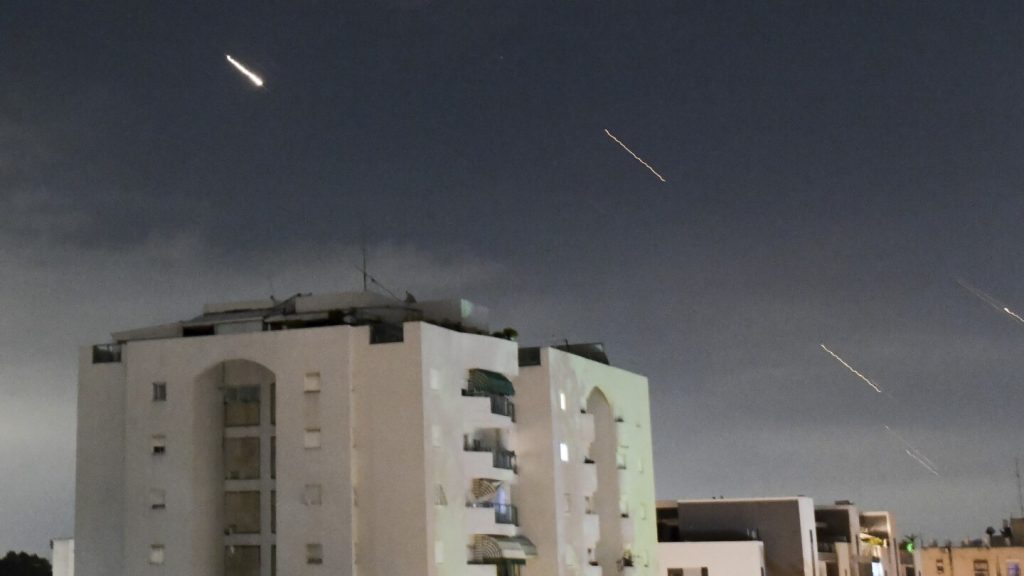Israel successfully defended against an unprecedented attack by Iran, intercepting 99% of the more than 300 drones and missiles launched towards its territory. The attack was in response to a strike on an Iranian consular building in Syria earlier in the month. Israel and the United States have worked together to establish a strong air defense network capable of intercepting various threats, including long-range missiles, cruise missiles, drones, and short-range rockets. The collaboration between Israel and its allies played a crucial role in thwarting the attack.
The aerial assault marked the first direct military assault on Israel by Iran, despite decades of enmity between the two countries dating back to the 1979 Islamic Revolution. The attack set off air raid sirens across Israel, raising tensions in the region. Despite the successful interception of most of the threats, Israel remains on high alert, prepared to respond to any further escalation. Israel’s Prime Minister Benjamin Netanyahu and Defense Minister Yoav Gallant praised the results of the defense operation but emphasized the need for continued vigilance.
Israel’s successful defense against the Iranian attack stands in contrast to its recent struggles during Hamas’ assault on October 7. The swift interception of the drones and missiles by Israel’s air defense system could help restore Israel’s image following the previous defeat. The United States has pledged to support Israel and convene its allies to develop a unified response to the situation. President Joe Biden praised Israel’s capacity to defend itself and reiterated the U.S.’ commitment to preventing further escalation.
Both the U.S. and Iran have issued warnings against further escalation, with Secretary of State Antony Blinken stating that the U.S. does not seek escalation and will hold talks with allies in the coming days. Iran’s paramilitary Revolutionary Guard issued a direct warning to the U.S., threatening a decisive response to any support or participation in harming Iran’s interests. The ongoing conflict between Israel and Iran, exacerbated by the recent attack, has strained relations in the region and raised concerns about potential further escalation.
Negotiations for a ceasefire in Gaza have faced setbacks following Hamas’ rejection of a proposed deal presented by mediators. The release of hostages and the end of hostilities have been key points of contention in the negotiations. Hamas welcomed Iran’s attack as a response to the strike in Syria and called for continued support from Iran-backed groups in the conflict. Meanwhile, Hezbollah has intensified attacks on Israel’s northern border, adding to the complexity of the situation in the region. The conflict has also drawn in Iranian-backed groups in Iraq, Syria, and Yemen, leading to daily exchanges of fire with Israel.
As the situation in the region remains volatile, with ongoing tensions between Israel and Iran, the international community closely monitors the developments. The successful defense by Israel against the Iranian attack, supported by the U.S. and its allies, highlights the complexities of the regional conflict and the potential for further escalation. Efforts to de-escalate the situation through diplomatic means are crucial to avoiding a broader military conflict. The ongoing negotiations for a ceasefire in Gaza and the continued engagement with key players in the region will determine the path forward in the midst of escalating tensions.


